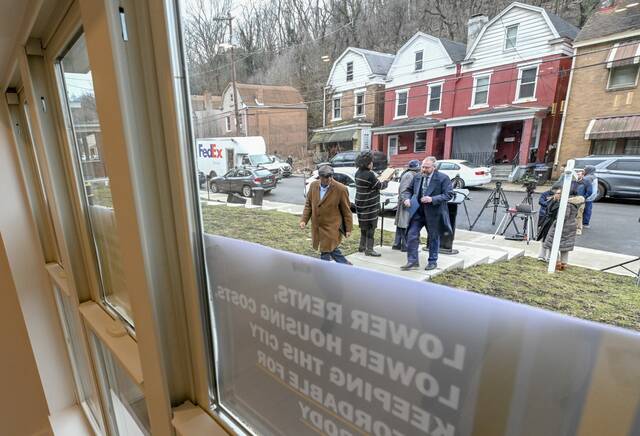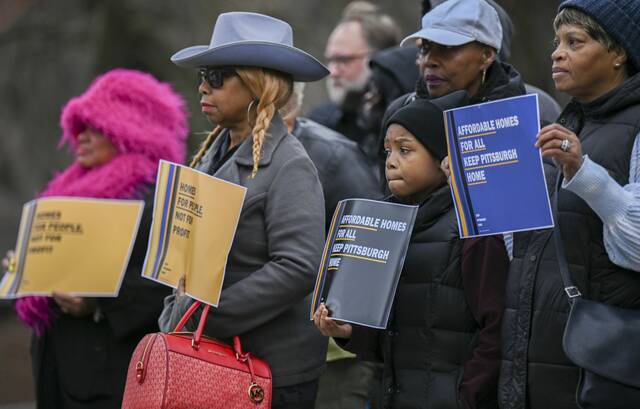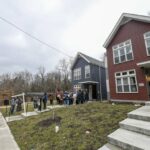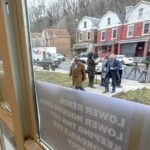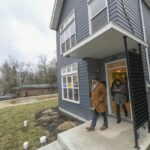Standing outside a blue house built on a once-blighted site in Hazelwood, Pittsburgh officials on Thursday trumpeted an all-too-rare success story for the city’s land bank — one they hope becomes more frequent.
Mayor Ed Gainey and others were showing off a newly constructed home on Flowers Avenue, one of three houses on the block that previously had been a dilapidated building and empty lots.
Now, thanks to the Pittsburgh Land Bank, all the properties were returning to the tax rolls. A Hazelwood resident is in the process of buying the house that served as a backdrop for the press conference.
“The development behind us is a powerful example of what’s possible when we take proactive action,” said Sonya Tilghman, executive director of Hazelwood Initiative, a nonprofit that creates affordable housing.
“The land on which these homes were built was once publicly owned and tax delinquent,” Tilghman said. “By working with the Pittsburgh Land Bank, we were able to acquire these properties in a matter of months, not years, which had been the previous process.”
Each home was sold for $205,000, Tilghman said. Buyers received up to $90,000 in assistance through the Urban Redevelopment Authority’s OwnPGH program, which helps low-income homebuyers.
Since 2023, the land bank has either sold or helped prepare for sale 150 formerly blighted properties throughout the city. Work performed by the land bank includes taking ownership of the properties, clearing titles, erasing delinquent tax bills and doing minor restoration work.
The land bank, an affiliate of the redevelopment authority, was created in 2014 and tasked with selling vacant and abandoned properties to buyers who could turn them into community assets, like affordable housing or urban farms.
But the land bank had a slow start, selling no properties until 2023.
The restoration along Flowers Avenue comes as a massive riverfront development, Hazelwood Green, is bringing biomanufacturing and robotics centers to the neighborhood.
The development is spurring heightened interest in the community, said Councilperson Barb Warwick, D-Greenfield.
“But none of that matters if it’s going to price out the folks who live here,” Warwick said.
That’s why the land bank is so important in the eyes of city officials. It can help transform vacant and abandoned properties into affordable housing, collaborating with neighborhood-led organizations like Hazelwood Initiative, rather than selling to for-profit developers.
Gainey said a new housing initiative, Keep Pittsburgh Home, will support the land bank and fight back against land speculators.
“We are reversing the trend of speculators taking over our neighborhoods,” Gainey said. “We are fighting to keep our communities whole. Pittsburgh belongs to the people who live here, and together, we will Keep Pittsburgh Home.”
The land bank does not sell to speculators.
A report from the Pittsburgh Community Reinvestment Group showed just under a quarter of sales locally in 2021 involved residential property wholesalers, up from 15.5% in 2010.
Neither the mayor nor other officials offered details at the press conference on how the new housing campaign could enhance the work the land bank is already doing or fight speculators.
“We have to keep Pittsburgh home,” Gainey said. “This initiative is all about how we stabilize our neighborhoods.”



